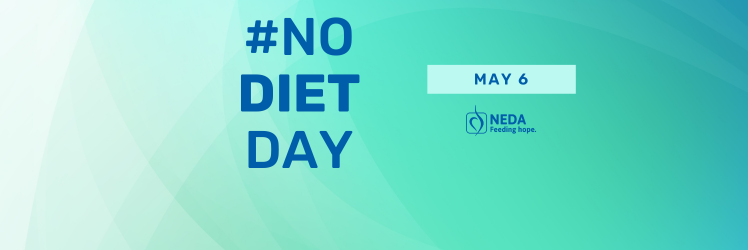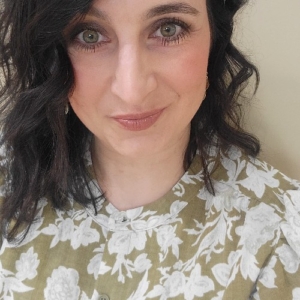Nurse and Patient: Living With an Eating Disorder
My history with disordered eating and eating disorders involved dieting, which was sometimes disguised as “lifestyle changes” or “clean eating”. Dieting was and is everywhere and there is always a new way to lose weight or a new food plan or magic pill and I can remember going on my first diet as early as the 6th grade. For many years I engaged in disordered eating and eventually was diagnosed with first anorexia, then bulimia. Having never learned how to manage my stress, anxiety, depression, or even moments of joy, I struggled for a long time with asking for help or even knowing that I should. I grew up in a home and culture that didn’t talk about things like therapy, mental health, or asking for help so I wasn’t even sure where to start. It is no surprise to me that I decided to work in healthcare because I had a strong desire to help others and I had an understanding of both mental and physical health struggles.
Having an eating disorder was further complicated by my self-perceived moral responsibility as a nurse. I felt like an imposter as a nurse, educating about healthy habits, asking for help, and mental and physical health, and battling first anorexia, then bulimia in private. Over the years, I have been on multiple diets because of my desire to look like the images I was seeing on TV and on social media. Despite knowing these images were digitally altered and literally unattainable, I still felt cultural pressure to be thin and was convinced of this need by deceptive messaging and advertising. I somehow felt less than or not enough when I could not conform to the strict rules of each diet I tried which just worsened my self esteem and self image and I would start the cycle over and look for a new diet.
Every part of my life had been infiltrated by the eating disorder. It has only been recently after I’ve started working with a dietitian that I truly understood how skilled I was (and sometimes still am) at manipulating myself. I justified and rationalized all of the reasons I couldn’t have certain meals or eat specific amounts of food. Which is why I found myself literally crying when the dietitian asked me to eat something. I cried. I found myself constantly asking her how I could know what was right and healthy for my patients but struggled so much to do the same for myself.
Recovery is expensive. I don’t take for granted that I can afford to see a dietitian, therapist, psychiatrist, and primary care physician. But the alternative is the costs of continuously tearing your body apart and ending up in the physician’s office and the therapist seeking repair. Eating disorders can impact and invade every relationship in your life, your family, and your job if you let them. They steal your energy, sleep, and rob you of joy and living a fulfilling life. Recovery should not be a luxury or privilege, but I am grateful for the chance. The hardest part of recovery is trusting the healthy voice and the “experts” and simultaneously ignoring the disordered voice in your head that has been telling you all the reasons it was right for so many years. My recovery has reminded me what a gift it is to work as a nurse and help those who are seeking help and trusting us to help them. I am proud to be a nurse AND recovering from an eating disorder.
Since beginning recovery, I have worked with my therapist and dietitian on accepting and respecting my body as it is and for all it can do. I am learning to trust my body to know what it needs and learning to honor hunger and fullness cues. Before recovery I would speak to myself and about myself in a way I would never speak to anyone else. Now my inner voice is much kinder and I treat myself with the respect I deserve and have worked hard for. I know that I am more than enough.
Natalie is a 39-year-old female, registered nurse (RN) currently working in a crisis stabilization unit. She has struggled with disordered eating her entire life and she is in recovery from bulimia having also had anorexia. She lives in Georgia and is currently pursuing her MPH and hopes to work in mental health after graduation.





